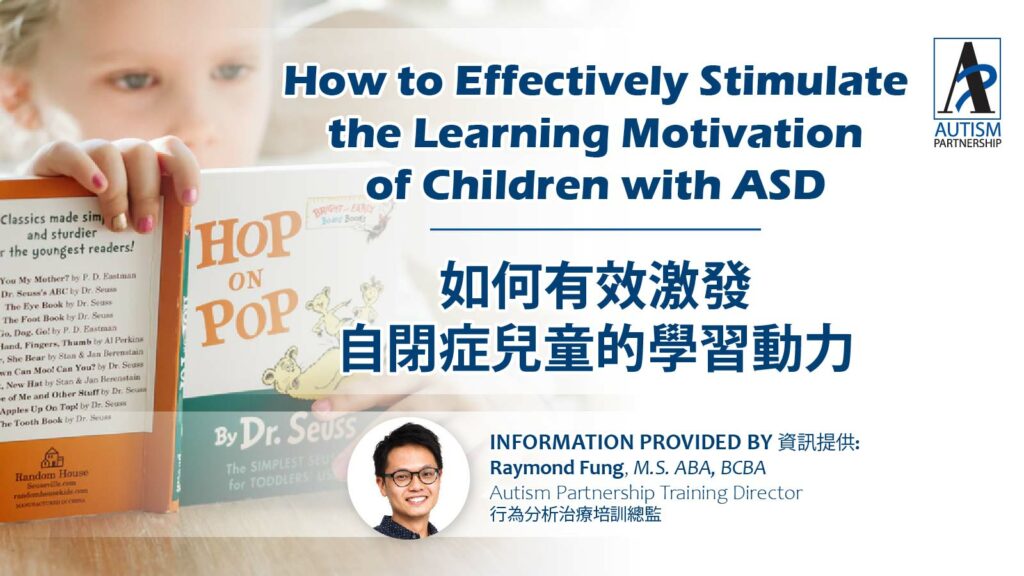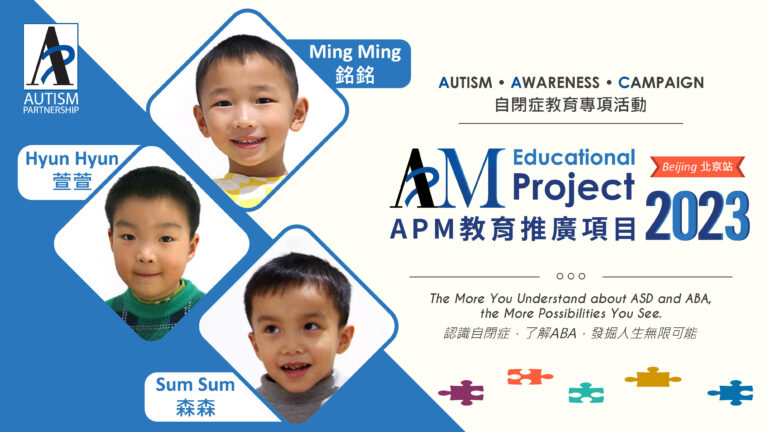
One of the most important sources of learning motivation is reward. Rewards are not necessarily food or toys. It can also be games, activities, attention, escape, satisfaction, peer recognition, etc. Rewards can promote effective learning, but to use rewards effectively is not as easy as it says. It requires knowledges and skills, especially applying for children with ASD.。
Considering the limited interests and limited communication skills of children with ASD, we need to observe and analyze their behaviors carefully when choosing effective rewards.
Taking toys for rewards as an example, you could observe if the child reaches out to grab the toy actively, expresses happiness, or shows reluctance or resistance when the toy is taken away. If the child displays no reaction or refuses to accept the toy when you pass the toy to him or her, then it is not an effective reward, no matter how valuable we think this item is or how much the child liked it before.
Teaching Tips:
(1) For children who have just started to communicate verbally, to encourage them to speak more, we should give them rewards immediately when they speak.
For example, if they have requested the toy they wanted, we should give them the toy immediately, letting them understand the power of speech and improve their motivation to speak.
On the contrary, if they couldn’t get the toy after speaking for a moment or two, they will learn that speaking is useless. If they have tried other methods, like screaming, and got the toy, even our intention was to give out the reward after they have spoken, but since the reward was delayed, they would assume screaming is the effective communication way.
Teaching Tips:
(2) For children with ASD who have a certain degree of speaking ability, they might take advantage of the power of speech and make many different requests all day long. Since we cannot satisfy all their requests immediately, some parents and teachers would rather stay quiet or shift their focus on other matters.
However, when children with ASD found that speaking does not achieve their wants and being quiet is not likely to get obvious benefits, they may start to display their dissatisfaction through behaviors like disobedience, complaints or screaming, etc.
When things become difficult to control, teachers or parents might offer a bride, for example, ‘I will buy fries if you are well-behaved.‘ or ‘You can play with the computer if you keep quiet.’
Seemingly, the usage of bribery not only resolves the children’s behavioral problems instantly but is also easy to apply, even for people without professional training.
However, potential risks are hidden behind these benefits: if bribery is always offered right after the behavior problems, then these behavior problems will be strengthened conversely. Children with ASD may learn that no positive attention or benefits will be achieved when they are compliant. Only disobedience or screaming could get generous benefits from parents and teachers.
Teaching Tips:
In summary, to effectively stimulate the learning motivation of children with ASD, not only does it acquire great skills in applying rewards, but also needs to constantly evaluate and adjust the situation based on the children’s reactions and behaviors.
If parents or professionals could apply the above techniques with good judgments, I believe that the learning motivation of children with ASD can be greatly stimulated and improve their learning efficiency.
To know mor

Every little life is a special present for a family. From the time a baby is born, parents journey through lots of highs and lows, wishing for their child to grow up with a big smile, make great friends, find their own way in a job they love, and create a happy family. However, for […]

Autism Spectrum disorder can be diagnosed as early as 18 months. Research shows strong evidence on how effective Applied Behavior Analysis (ABA) can help children with Autism. It helps to deal with children’s challenging behaviors such as inattention, aggression, self-stimulation, etc. Howard, et al (2005) conducted a study to compare the effectiveness of 3 treatment […]

In today’s society where information flows freely, parents can easily receive different messages. However, these messages are often debatable or even wrong. Believing wrong information can easily lead to misguided choices and delay treatment, the consequences of which may last a lifetime. When conducting one-on-one consultations with parents, I often hear the following misguided views […]
Please share to let more people learn about ASD and ABA therapy:
AP holds the belief that with quality Autism Partnership Method (APM) treatment, individuals with autism should reach their fullest potential and achieve the greatest degree of independence and highest quality of life possible.

Sign up now to get ABA and Autism related news delivered to your inbox. Enter your email to get started
Hong Kong Center
Kowloon Center

All information received will always remain confidential. We will contact you as soon as we review your message. Thanks